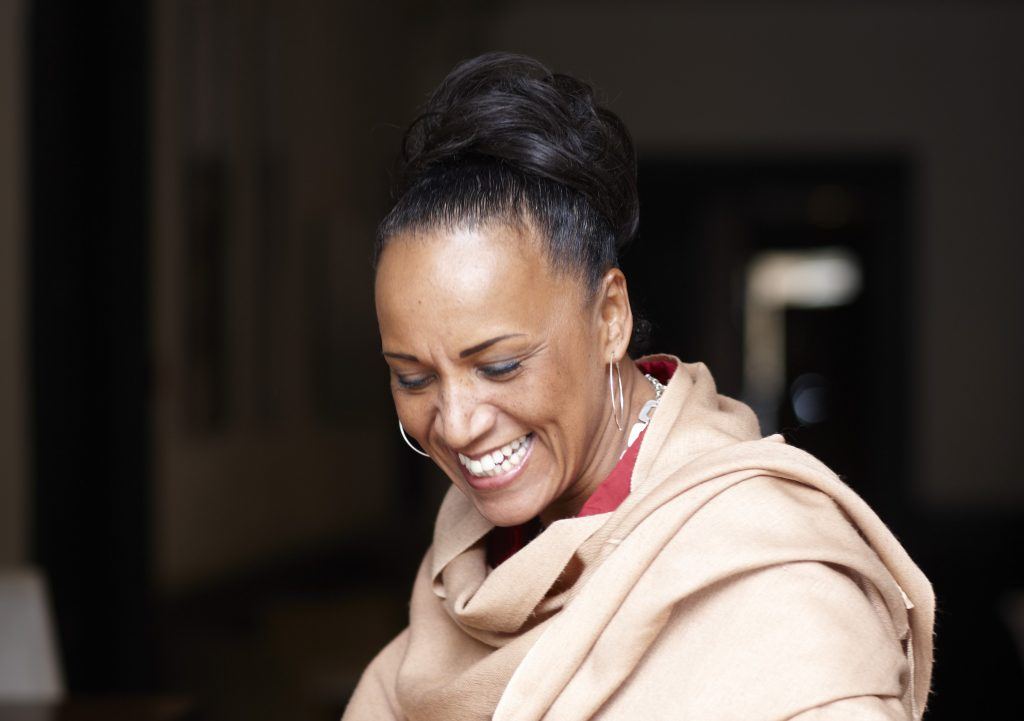Lesley Lokko trained as an architect at the Bartlett School of Architecture and holds a PhD in Architecture from the same institution. She is the founder and director of the African Futures Institute, a postgraduate school of architecture and public platform of built environment disciplines located in Accra, Ghana. She was the founder and director of the Graduate School of Architecture at the University of Johannesburg from 2014 — 2019 and Dean of Architecture at the Spitzer School of Architecture, CCNY from 2019—2021. She is a Visiting Professor at the Bartlett School of Architecture and sits on the boards of the Architecture Foundation (London) and the UN-Habitat Council on Urban Initiatives. She is the editor of White Papers, Black Marks: Race, Culture, Architecture (University of Minnesota Press, 2000); editor-in-chief of FOLIO: Journal of Contemporary African Architecture and a series editor of Design Research in Architecture (UCL Press), together with founders Jonathan Hill and Murray Fraser. In 2004, she made the successful transition from academic to novelist with the publication of her first novel, Sundowners (Orion 2004), a UK-Guardian top forty best-seller, and has since then followed with eleven further best-sellers, which have been translated into fifteen languages. She has lectured and published widely on the subject of race, identity and architecture, and has served on many international juries and awards over the past decade, including the Aga Khan Award for Architecture, Archiprix, the RIBA President’s Medals, ArchMarathon and the 2021 Venice Biennale. She is the recipient of the 2020 RIBA Annie Spink Award for Excellence in Architectural Education and the 2021 Ada Louise Huxtable Prize for Contributions to Architecture.
Statement Lesley Lokko:
A decade is often a good yardstick for measuring the impact of events. In my mind, the global COVID pandemic and the global racial justice protests are fused, even though each started as a local phenomenon before spreading like wildfire. Africa is the world’s youngest continent, with an average age of 19, compared with 38 in Europe. Scientists have different explanations for why the death rate in Africa was so low compared to so many other places — youthfulness; heat; a largely outdoors lifestyle — there doesn’t appear to be a single, concrete answer. However, the prolonged lockdown and reliance on digital media to interface with the rest of the world left an unexpected consequence in its wake: Africa’s youth emerged in 2021 with a stronger and more confident sense of self, partly in response to the protests, which provided first-hand evidence that ‘there’ (i.e., Europe and the United States) was not quite the Promised Land that many believe it to be, and a new sense of inter-connectedness across the globe. We were all in this together, rich and poor, black and white, native and immigrant, urban and rural.
Whilst the vaccination rollout amongst poorer nations has been uneven, in many cases, African countries began their containment protocols much earlier than richer counterparts. Taken together, these two aspects — increased confidence and connectedness — have energised conversations around education and the built environment disciplines. We are more aware of the relationship between public health and urbanism, for example; of the power of imagination and its role in emancipation; of the inter-twined relationship between decolonisation and decarbonisation; of the importance of aligning vision with a greater sense of vocation — in other words, this enforced period of self-reflection has opened up new and imaginative territory that could, if it is harnessed and protected, mean a very different future not just for Africans, but the rest of the world. 2021 was indeed an annus horribilis. The signs are already apparent that we may emerge from it not destroyed, but stronger — if we are able to read them.
Photo: Debra Hurford-Brown
